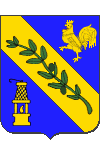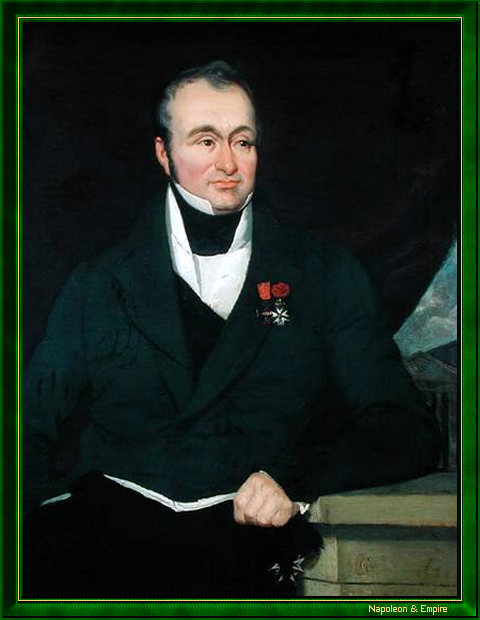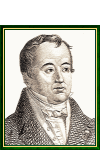Guillaume Dupuytren
Pronunciation:

Guillaume Dupuytren was born on October 6, 1777 in Pierre-Buffière, Limousin (now Haute-Vienne). He arrived in Paris in 1789 and entered the Collège de la Marche, rue de la montagne Sainte-Geneviève.
At the time of the "Patrie en danger", he was tempted to join the army, but his father, a lawyer by training, preferred to see him as a surgeon, and in 1793 enrolled him as a trainee at the Saint-Alexis hospital in Limoges. Guillaume then moved to Paris, where he studied at the Charité, the Salpêtrière and the Ecole de Santé, with Alexis Boyer for anatomy, Auguste Thouret for medicine, Louis-Nicolas Vauquelin and Edme Jean-Baptiste Bouillon-Lagrange for chemistry, and Philippe Pinel for insanity. Penniless, he studied ardently, seeking relaxation only in reading the great authors.
At the age of eighteen, he was appointed prosector (assistant to a professor, who prepares and directs practical anatomical work, in particular dissections) at the Faculté de Paris. Jean-Nicolas Corvisart des Marets gave him special responsibility for autopsies, and recommended him to the famous physiology professor Leclerc, whose assistant he became. At the age of twenty-four, in 1801, he was appointed head of anatomy. His assistants were Antoine-Laurent-Jessé Bayle and René-Théophile-Hyacinthe Laënnec.
His professional qualities unfortunately went hand in hand with a pride and appetite for notoriety that led him to say, on the death of Xavier Bichat in 1802: At last, I'm starting to breathe
.
In September 1803, he defended his thesis: Propositions sur quelques points d'anatomie, de physiologie et d'anatomie pathologique (Proposals on a few points of anatomy, physiology and pathological anatomy), and went on to teach anatomy. After a competitive examination, he was appointed assistant surgeon at Hôtel-Dieu, then Inspector General of the University when it was set up in 1808, Professor of Operative Medicine in 1812, and finally Surgeon-in-Chief of Hôtel-Dieu in September 1815.
The Restoration showered him with honors: created a baron in 1816, he became the Louis XVIIIKing's first surgeon, and was elected a member of the Académie des Sciences in 1825.
A teacher feared by his students, a great practitioner and a tireless worker (he was nicknamed "the Beast of the Seine"), Dupuytren performed and perfected almost all surgical operations. He was responsible for several new operations in the 19th century, including the healing of the intestine in strangulated hernias, the ligation of the main arterial trunks, the resection of the lower jaw, the surgical reduction of the lower fracture of the two leg bones (which has since been named after him), and of course the surgical treatment of retractile fibrosis of the palmar aponeurosis of the hand (also known as Dupuytren's disease).
Through his work (he saw up to ten thousand patients a year), he amassed a large fortune, estimated in 1830 at three million francs. He offered a third of it to the exiled Charles X, who wisely declined.
Guillaume Dupuytren suffered his first stroke in November 1833, and died in Paris on February 8, 1835. His tomb is in the 38th division of the Père-Lachaise cemetery in Paris.
"Guillaume Dupuytren". French school of the nineteenth century.

Although he was a contemporary of such great medical personalities as René Laënnec, Marc-Antoine Petit, Philibert Joseph Roux, Xavier Bichat, Dominique-Jean LarreyDominique-Jean Larrey and others, his difficult character prevented him from making friends (with the notable exception of his pupil Jean Cruveilher, also from Limoges) or leaving disciples. Joseph-François Malgaigne wrote of him: "One cannot claim glory when one has only aimed for fame", and Pierre-François PercyPierre-François Percy harshly described him as First among surgeons, last among men
.
Other portraits

"Guillaume Dupuytren". Print of the nineteenth century.